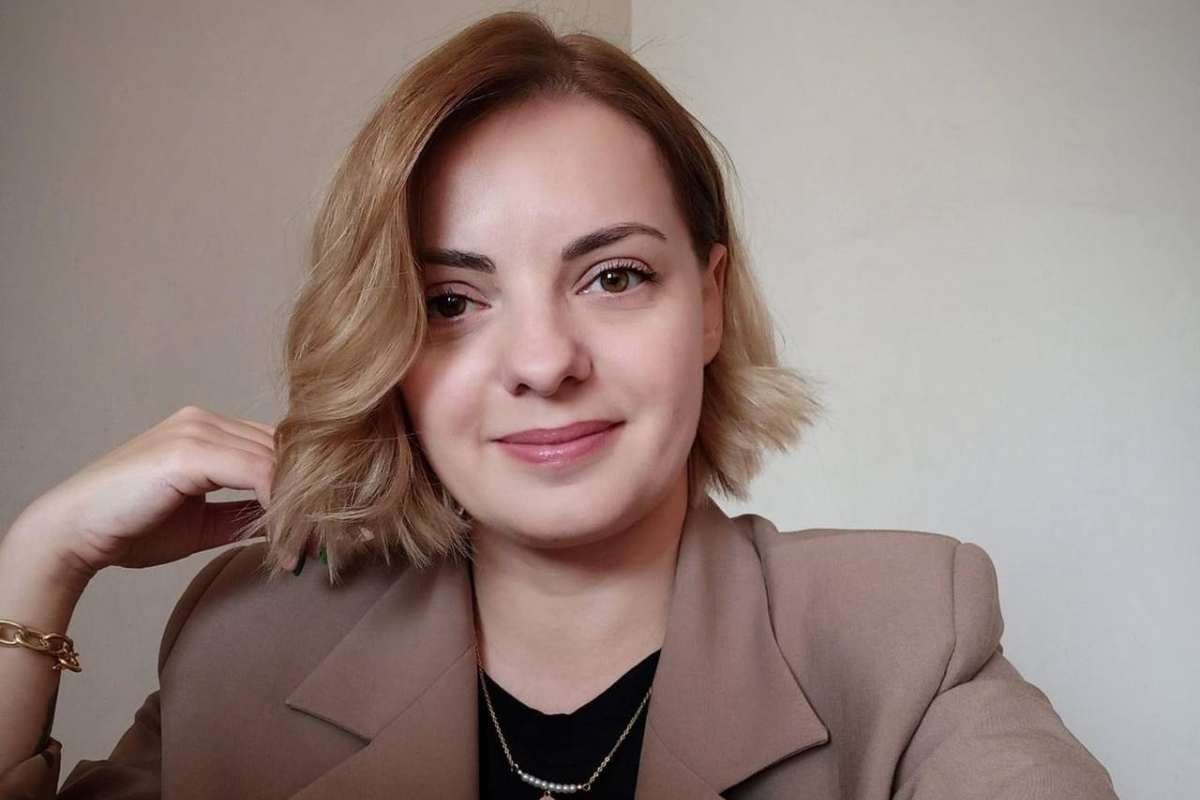In the words of Nataliia Novitska: “When a woman living with HIV is displaced by war, she needs to maintain access to antiretroviral therapy”
Date:

Nataliia Novitska 36, is Project Manager at the NGO “Positive Women”, which provides assistance and information to women living with HIV across Ukraine, even amid the Russian invasion. It is among the organizations supported by UN Women's Peace and Humanitarian Fund (WPHF).
![]()
“The full-scale invasion was a challenge for everyone, including our organization, Positive Women. Our main goals are to empower women, ensure their access to services and develop their leadership skills. The war put all this at risk. In the first weeks, our team thought primarily not about leadership, but about their own safety. Should we leave or stay? How could we ensure the safety of our loved ones?
For our Kyiv office, our management and leaders in the regions, the question arose of how to continue our work. Women began turning to us for help from the first days, looking for advice and support. We decided to activate all resources and act.
I already had experience with urgent evacuation because in 2014 I had to leave Donetsk. So, without hesitation I started looking for additional resources to help women living with HIV to meet their basic needs.
Leaders in the regions actively exchanged information, news and advice, and supported each other. This helped us all to survive the first weeks and months of the invasion. Positive Women did not lose a single regional coordinator or activist. Since February, our team has even expanded, and we all continue to help women. I think that after these challenges, we’ve become more resistant and stronger.
At the end of February, like many other organizations, we received information from UN Women Ukraine about the possibility of writing a proposal [for funding] from the Peace and Humanitarian Fund. We wrote this proposal in a very stressed state, but we understood that we needed resources to provide urgent support to women from vulnerable groups.
We have already worked in four regions of Ukraine – Ivano-Frankivsk, Cherkasy, Khmelnytskyi and Chernivtsi regions – setting up shelters, temporary residences for women with HIV and for women vulnerable to HIV. We realized that the primary need now is these shelters and their equipment. We cannot turn away women who have become internally displaced because of the war, so our activities have expanded. Humanitarian support to ensure the basic needs of women and children – for medicine, food, clothing, baby food and hygiene products – has also become a significant part of our activities.
Another need was the evacuation of women, women with children and people with disabilities, and within the framework of our project we could pay for their transportation costs. We also actively provide psychological and legal support.
When a woman living with HIV is displaced by war, she needs to maintain access to antiretroviral therapy. Our task is to provide uninterrupted access to treatment. Due to the destruction of medical institutions, all previously working algorithms, planned diagnostics, treatment and therapy were disrupted.
Another issue that Positive Women deals with is preventing mother-to-child transmission of HIV. To prevent such transmission, one of the components is artificial feeding, with the purchase of milk formula for newborns. We appeal to donor organizations to provide this for women with babies on a permanent basis, to bring baby formula to Ukraine through new routes.
The question also arose about the violation of the rights of women with HIV who were kicked out of shelters when they learned about their status or the positive status of their children. Not all people are aware of how HIV is transmitted [through biological fluids – blood, semen, breast milk – or sexual contact or childbirth]. Therefore, it causes fear and misunderstanding. People living with HIV are safe for the community. Their status does not prevent common living or joint games between children.
Our organization has been engaged in advocacy since 2013. Now, we are seeing that the barriers to accessing medical and social services have become larger. As a result of the war, we seem to have been thrown back 10–12 years in terms of access to services, reproductive health and human rights in general, in particular the rights of women with HIV.
A significant challenge for us as an organization has been to continue working with authorities at national, regional and local levels, because the problems of women with HIV are not prioritized. That is, the issues we advocated for earlier were put on hold, because it was necessary to provide for basic needs during the war. Now, things are improving. Positive changes have begun, but many problems remain.
Why is it important that the voices of women living with HIV be heard? We want our needs to be considered, because we know how to prevent the spread of HIV and provide quality therapy. We have road maps for women and clear action plans. But the most important thing is that this system should work continuously.
Our organization has been strengthening its expertise for 10 years and we have made significant changes both at the legislative level and in improving the quality of services and access to them, reducing stigma and discrimination. It is very important now not to lose all of this, and to prevent the situation from worsening.”
#wphfund #WomenBuildPeace #WomenRespond2Crises #UNSCR1325 #InvestinWomen #1000WomenLeaders